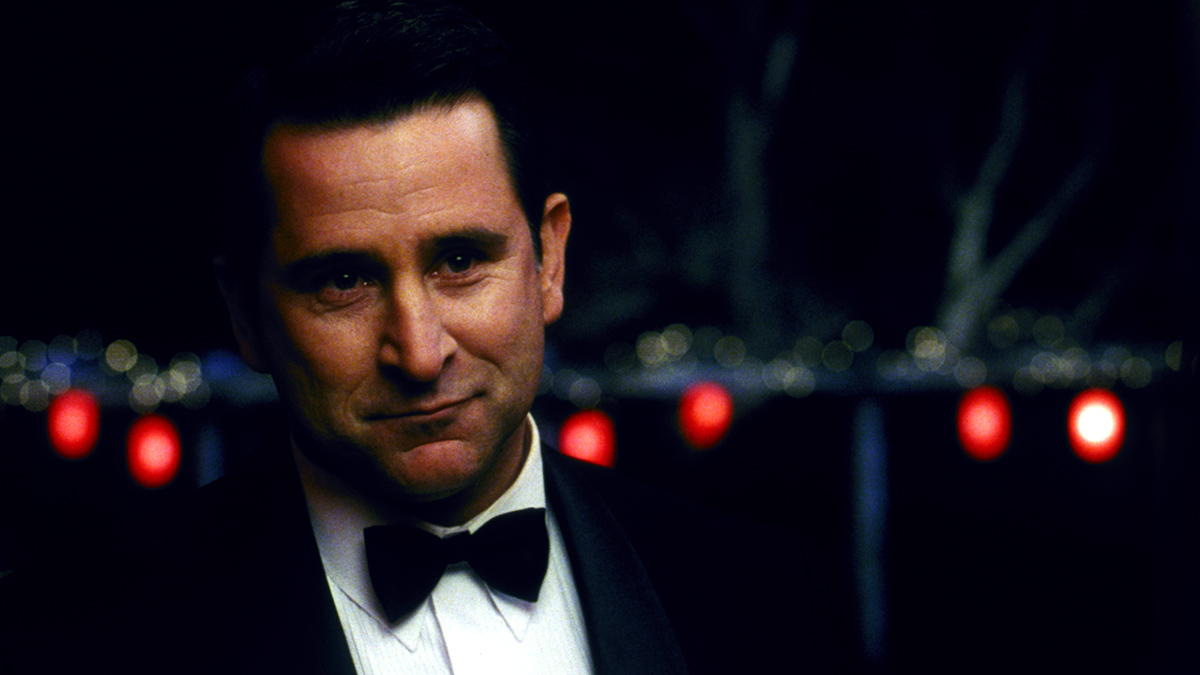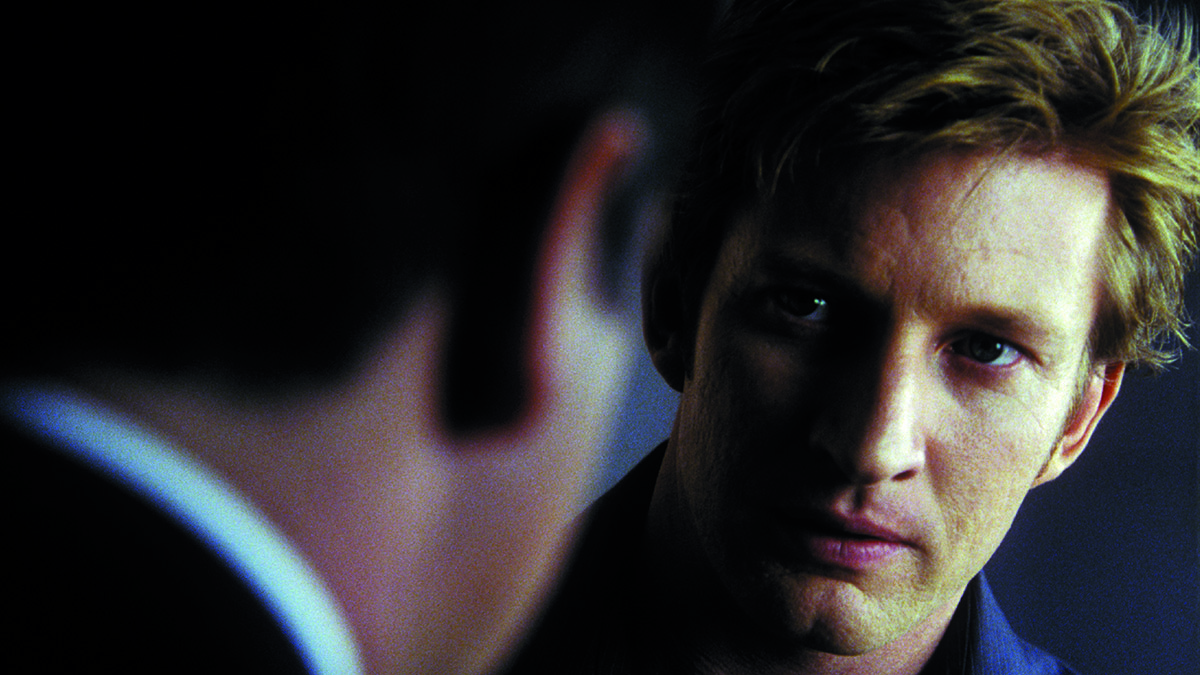Following the Money: Robert Connolly on The Bank and the Australian Film Industry

Critics Campus 2023 participant Kevin Bui speaks to director Robert Connolly about his newly remastered debut feature, 2001 Australian economic thriller The Bank.
When Robert Connolly’s The Bank premiered on the opening night of the 50th Melbourne International Film Festival in 2001, Australia – and its screen industry – was in a very different place. Following the turn of the new millennium, many of the country’s greatest cinematic minds were more determined than ever to depict the nation’s fast-evolving cultural identity on film. Now, for MIFF’s 71st edition, Connolly has returned to the festival with his debut feature in a glorious 4K remaster. Over a quick phone call on his way to the airport, one of the country’s most distinguished directors discussed the politics of The Bank, his approach to filmmaking and what’s in store for the future of Australian cinema.
The Bank cleverly utilises the Melbourne cityscape to create these really alienating, isolating locations. It really sets it apart from other Australian films made around that time. How important was it for you to shoot the movie in Melbourne?
When you think of where Australian cinema was in 2001, it really was very much coming out of the massive success of Muriel’s Wedding [PJ Hogan, 1994] and [The Adventures of Priscilla, Queen of the Desert, Stephan Elliott, 1994] a few years before. It was rare for our national cinema to look at big, corporate environments and to perceive that stories could be set in that landscape. I didn’t feel like Australian films at the time really embraced the fact that we were a financial metropolis. Melbourne seemed perfect for that. I worked with cinematographer Tristan Milani on how to approach depicting the city, as you can see with the steely greys and the reflective surfaces and the muscularity of that urban landscape. But I think, more philosophically, it was about going, “Hey, we have to start seeing ourselves this way.” With The Bank, I was very interested in trying to depict not just Melbourne as a city, but Australia as a nation being this kind of economic force that we know we are now.
There’s a scene in the film where one of the characters makes a reference to J Robert Oppenheimer’s work being used to make the atom bomb. Despite being made in 2001, do you think there’s a political timelessness to The Bank that still resonates with audiences today?
It’s interesting, you know, that when you have an overt political stance in your work, often you fall foul of this critical view that works of narrative fiction should keep their politics subsumed to the drama and the narrative. You mentioned Oppenheimer [Christopher Nolan, 2023], but that and Barbie [Greta Gerwig, 2023] are two films that wear their politics on their sleeves and are still hugely massive successes. I’ve always argued that cinema should have an opinion. Whether it’s conservative or – in terms of my own views – progressive, it’s important to have ideas about the world and to challenge things conceptually. I actually think there’s a danger in expecting cinema to be nice and polite and to stand at an arm’s length from political ambition. Many films that I love do that; in fact, some of the greatest filmmakers of all time do that. It’s just that I don’t. I feel very happy to assert a view.
I’m really proud of The Bank. In the film, there’s another scene where Anthony LaPaglia’s character talks about this new feudal world where corporations rule society and governments fall into place behind them. [The film is] very, very timely. So I remastered it, really, as a nice way to place something I made at the start of my career in a contemporary context. Watching it the other night, I found it really exciting to see a work that spoke of corporate responsibility from over 20 years ago connect with a modern audience.

The Bank
Throughout the years, we’ve seen plenty of Australian talent take their skills overseas to work on larger productions. Do you think a diverse filmography is the key to having a successful career abroad? Was there ever any interest from you, for example, to make it in Hollywood?
A big inspiration for me is Peter Weir. He’s one of the great humanist storytellers, but he’s also worked in various genres. I felt like he was an inspiration to me because he showed that you can make a film like Gallipoli [1981], but then you can also go off and do Picnic at Hanging Rock [1975] – and then you can make a big Hollywood movie like The Truman Show [1998]. He gave me this idea that, as a storyteller, you don’t have to be trapped by genre. Your sensibilities will manifest in different ways. I like to think there’s a kind of ambition that my cinema has to tell stories about people impacting the world, whether it’s the story of José Ramos-Horta [Oscar Isaac] saving East Timor in Balibo [2009], or Jim Doyle [David Wenham] redistributing the wealth of the 1 per cent in The Bank. They’re all works that explore the agency of individuals against these institutions.
The opportunity to make stories on a much bigger scale has always attracted filmmakers. For a lot of directors, I completely understand why they might want to work on a larger palette, with greater budgets and huge movie stars. I went to Morocco for several months to do a TV show called Deep State with Mark Strong, and that was so much fun. But I’ve been very fortunate to have been able to build this career here in Australia, and to be with my family and to raise my children. Maybe I’ll start to consider those types of jobs more often now that my kids are adults.
Earlier this year, the federal government announced plans to impose mandates on global streaming platforms that operate within Australia, requiring them to invest a percentage of their revenue back into local productions. How beneficial is this kind of institutional support to the future of the national screen industry?
The quota system that’s already in place for our free-to-air networks has helped build an incredible desire for Australian television over the years. Would these companies have made those shows if they didn’t have quotas? No way – not when they could buy really cheap TV from America. My view is that government support for our national storytelling in film and television is essential, and should never be taken for granted. It should always be fought for. The streamers, as you know, create huge amounts of content and spend a massive amount of money every year. But where are the resources going into creating local productions? Australians have a voracious appetite for content that reflects the national identity. And the streamers and studios should be focused on feeding that demand.
There’s a thing that someone said to me early in my career, which has really stuck with me over time: “Do you want a film industry in Australia? Or do you want an Australian film industry?” I think a lot of my contemporaries right now are kind of happy to be pushed off the perch a little bit by the next generation, but it’s not going to happen without support. I was supported when I was just starting out. The future of our national cinema, I think, should really be in the hands of new, emerging filmmaking voices. And I think generational change is really, really cool.